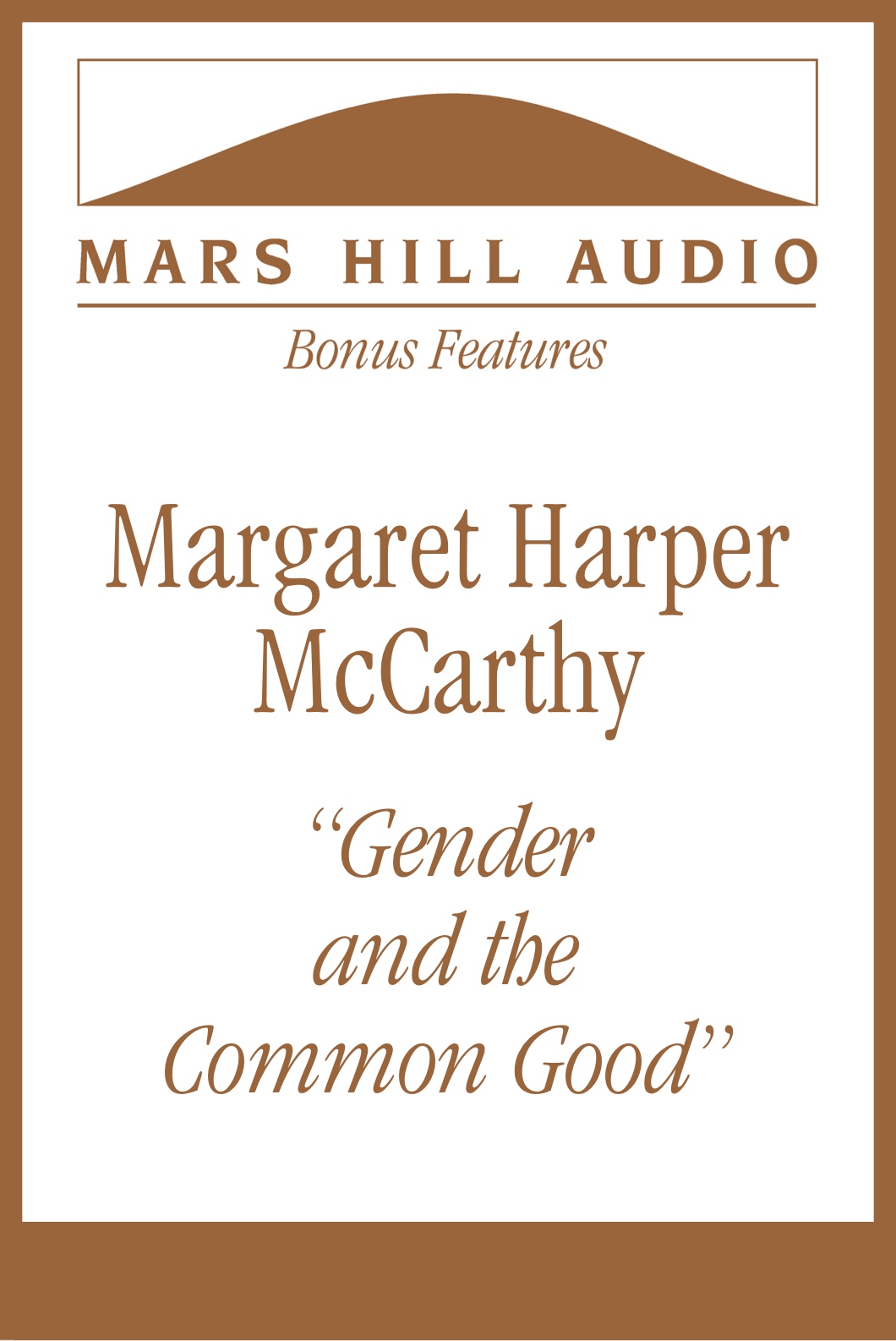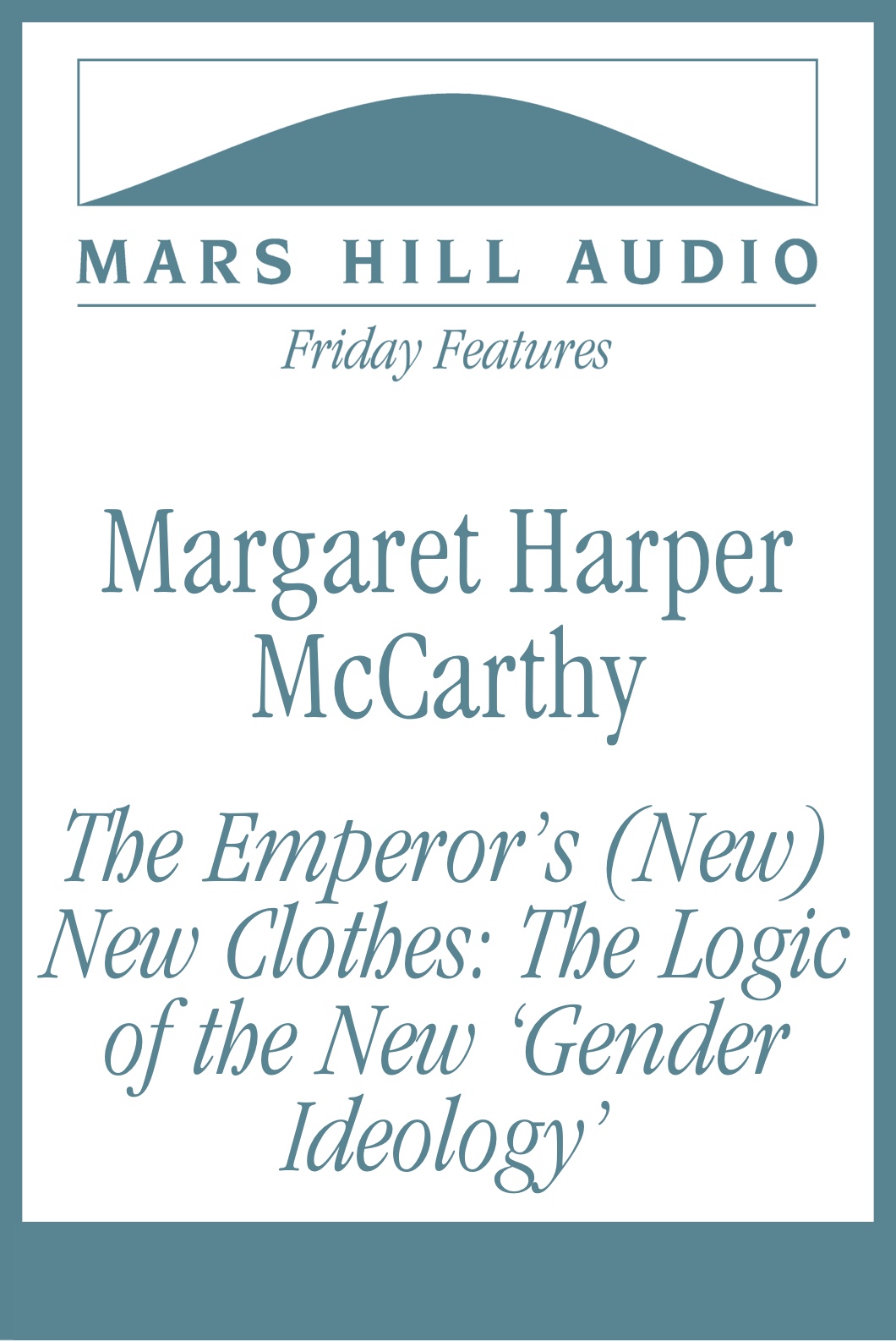
released 4/29/2024
In her November 2022 lecture titled “Gender and the Common Good,” Margaret Harper McCarthy argues that the current ideology regarding gender fundamentally separates people from one another and finally even from themselves. This view of gender claims we must remain “free” by vigorously resisting our given natures. Yet, as McCarthy insists, to be human is to be in relation to others. Gender ideology’s atomistic view is that one must remain in a state of fluid non-identity to avoid becoming trapped in unchosen relationships. We end up “alone together on contractual grounds,” which is not a stable paradigm for a society pursuing the common good.
This lecture is provided courtesy of the Pontifical John Paul II Institute on Marriage and the Family.
34 minutes
PREVIEW
The audio player for this program is restricted to MHA members and friends of the Pontifical John Paul II Institute for Studies on Marriage and Family. Log in or sign up now to listen to it.
More to hear . . .
In this article from Communio, Margaret Harper McCarthy demonstrates that the attempt to eliminate the givenness of sexual difference rests on a denial of the created person’s origin in and ordination toward relations of love. (68 minutes)
Related reading and listening
- A life well lived — In this essay, Stanley Hauerwas explains the breadth and depth of Alasdair MacIntyre’s thought, the goal of which was to help people to act intelligibly and live morally worthy lives. (40 minutes)
- The recovery of an integrated ecology — In this essay, Michael Hanby unpacks the summons of Laudato si’ to an ecological way of life based on a proper understanding of creation in its fullness and integrity. (57 minutes)
- Politics and the good —
FROM VOL. 160 D. C. Schindler argues that political order cannot be disentangled from the social, and that fundamental questions of what humans are and what the good is cannot be bracketed from politics. (30 minutes) - The collapse of public life —
FROM VOL. 154 D. C. Schindler explains how liberalism sought to make way for individuals to function together without any orientation to an explicit common good. (37 minutes) - The profound drama of human sexuality — In this lecture, D. C. Schindler explains the cosmological significance of human sexuality and why it is paradigmatic of the relationship between nature and freedom. (32 minutes)
- A poet’s relationship to time —
FROM VOL. 57 Poet Wilmer Mills (1969–2011) discusses how his agricultural and cross-cultural childhood in Brazil shaped his imagination and his relationship with modernity. (11 minutes) - The downward spiral of all technocracies — Andrew Willard Jones explains the two paths that exist with the development of new technologies: one which leads to an expansion of the humane world and one which exploits and truncates both Creation and humanity. (65 minutes)
- To see people as people — Anthony Bradley argues that a recovery of Christian personalism is needed to counter the dehumanization, polarization, and tribalism of our day. (45 minutes)
- Ethical issues in neurobiological interventions — William Hurlbut explores current neurobiological advancements and the ethics and dangers of biotechnology interventions that go beyond therapy. (62 minutes)
- An impoverished anthropology —
FROM VOL. 146 Mark Mitchell asks whether there is anything that truly binds Americans together beyond their commitment to self-creation. (34 minutes) - St. Thomas the anthropologist — G. K. Chesterton on Aquinas’s complete Science of Man
- An embedded life — Following a move from one state to another, Gilbert Meilaender explores the tension between being simultaneously a sojourner and a body located in place and time. (30 minutes)
- Gratitude, vitalism, and the timid rationalist — In this lecture, Matthew Crawford draws a distinction between an orientation toward receiving life as gift and a timid and cramped rationalism that views man as an object to be synthetically remade. (52 minutes)
- Humans as biological hardware — In this essay, Brad Littlejohn and Clare Morell decry how modern technology tends to hack the human person in pursuit of profit. (55 minutes)
- “The system will be first” —
FROM VOL. 27 Robert Kanigel describes the transformation of work due to Frederick Winslow Taylor’s concept of scientific management. (11 minutes) - What it means to be a person —
FROM VOL. 147 Sociologist Craig Gay argues that in order to address the challenges of a technological approach to the world, we need to recover the Christian tradition’s robust theology of personhood. (24 minutes) - Voluntarily silencing ourselves —
FROM VOL. 39 John L. Locke discusses the value of personal communication and how technology is displacing it. (12 minutes) - Human nature through the eyes of Lucian Freud —
FROM VOL. 7 Art critic and sculptor Ted Prescott discusses the work of British realist painter Lucian Freud (notably, the grandson of Sigmund Freud). (8 minutes) - The gift of meaningful work — In this lecture, D. C. Schindler argues that genuine work is inherently meaningful and facilitates an encounter with reality and therefore, ultimately, with God. (36 minutes)
- “Gender” as ultimate separation — In this November 2018 lecture, Margaret McCarthy explains how the predictions of Pope Paul VI’s Humanae vitae regarding the consequences of separating sex from procreation have proven true. (38 minutes)
- How words are central to the human experience —
FROM VOL. 95 Craig Gay reflects on the essential linguistic nature of humanity: how our growth (or decline) in life is tied to words. (18 minutes) - Bearing well the burdens of the past, present, and future — Louis Markos shows how great literature like the Iliad links us to the human story and strengthens us to live fully and well. (65 minutes)
- Why the sexual revolution “failed on its own terms” —
FROM VOL. 38 Wendy Shalit argues that when promiscuity is considered natural, women lose the leverage and power inherent in modesty. (13 minutes) - The abolition of the fine arts — In this lecture, R. V. Young examines why people are increasingly unable to discriminate between base and fine art, arguing why this issue is of particular concern to Christians. (41 minutes)
- The roots of American disorder — In this reading of an article from 2021 by Michael Hanby, the critique of Marxism in Augusto del Noce’s work is compared with texts from the American Founders. (79 minutes)
- Personhood, limits, and academic vocation —
FROM VOL. 39 Marion Montgomery (1934–2002) offers a deep critique of the relationship of the academy to its community in an effort to diagnose how higher education has lost its way. (13 minutes) - A Christian philosophy of integrated education —
FROM VOL. 61 Michael L. Peterson discusses how Christianity could inform society’s understandings of education and human nature. (8 minutes) - Education for human flourishing — Co-authors Paul Spears and Steven Loomis argue that Christians should foster education that does justice to humans in our fullness of being. (23 minutes)
- Automation and human agency —
FROM VOL. 150 Philosopher and mechanic Matthew Crawford laments the losses of human skill that correspond with gains in mechanical automation. (21 minutes) - Is liberalism compatible with religious freedom? — D. C. Schindler relies on two Thomistic axioms to illustrate why liberalism — which claims to offer a minimalist conception of the common good — is ultimately incompatible with a Catholic understanding of religious freedom. (34 minutes)
- Friendship and life together — In a lecture at Providence College, Ken Myers explores how the concept of friendship, which used to be central to political philosophy, was banished from considerations of public life as the state was exalted over society. (53 minutes)
- Renewal of authentic political authority — Brad Littlejohn builds a case for the idea that authority makes free action possible, illustrating how that occurs within the forms of political and epistemic authority, properly understood and wisely practiced. (45 minutes)
- A prophetic pilgrim — Historian Eric Miller charts Christopher Lasch’s intellectual journey in search of a vision that could direct Americans toward the higher hopes and nobler purposes that might lead to a flourishing common life. (57 minutes)
- Discerning an alternative modernity — In a lecture from 2019, Simon Oliver presents a summary of the cultural consequences of the comprehensiveness of the work of Christ. (28 minutes)
- McCarthy, Margaret Harper — FROM THE GUEST PAGE: Margaret Harper McCarthy is an Associate Professor of Theological Anthropology at the John Paul II Institute for Studies on Marriage and Family at The Catholic University of America, in Washington, D.C.
- Mars Hill Audio Journal, Volume 159 — FEATURED GUESTS: Kirk Farney, Andrew Willard Jones, James L. Nolan, Jr., Andrew Kaethler, Peter Ramey, and Kathryn Wehr
- The family in modern context — Allan C. Carlson explores ways in which the family life has been reconfigured since the Industrial Revolution, with largely destructive effects. (29 minutes)
- Mars Hill Audio Journal, Volume 157 — FEATURED GUESTS: Allan C. Carlson, Matthew Stewart, Steven Knepper, Holly Ordway, Norm Klassen, and Norman Wirzba
- Deconstructing the myths of modernity — In order to counter modernity’s fragmentation, Paul Tyson argues that we must recover a foundation of reality based on meaning and being. (35 minutes)
- The Christian humanism of Aleksandr Solzhenitsyn — One of the main themes emphasized by these three guests is that Solzhenitsyn was not principally concerned with politics, but with human nature and purpose, understood in light of the Christian account of reality. (39 minutes)
- With Eastern eyes — Paul Valliere and Vigen Guroian discuss questions of law, politics, and human nature from the Orthodox tradition. (34 minutes)
- Mars Hill Audio Journal, Volume 153 — FEATURED GUESTS: Charles C. Camosy, O. Carter Snead, Matt Feeney, Margarita A. Mooney, Louis Markos, and Alan Jacobs
- We are not Cybermen — Essayist L. M. Sacasas discusses some of the ideas of Ivan Illich, whose work has influenced Sacasas’s own understanding of the anti-human dynamics of technological society. (21 minutes)
- Man and woman as created realities — Pope Benedixt XVI on “gender” and the devaluation of the family
- Redefining gender — In this article from Communio, Margaret Harper McCarthy demonstrates that the attempt to eliminate the givenness of sexual difference rests on a denial of the created person’s origin in and ordination toward relations of love. (68 minutes)
- The abolition of men and women — Douglas Farrow on the anti-humanist logic of “gender”
- What is at stake for us in a self-driving future? — Matthew Crawford vividly details the “personal knowledge” acquired in interaction with physical things, their mecho-systems, and the people who care for them. (16 minutes)
- Erotic love (allegedly) conquers all — C. S. Lewis on why the “right to sexual happiness” makes totalitarian demands
- The social context of freedom — Brad Littlejohn talks about the necessity of a more expansive understanding of freedom, one which recognizes that we are really only free within the social experience of shared meaning and mutual recognition. (17 minutes)
- The Sixth Commandment and the obligation to protect public health — Ethicist Gilbert Meilaender explains why our experience with COVID-19 has made it difficult for many — citizens and officials — to honor a proper obligation to protect public health. (17 minutes)
